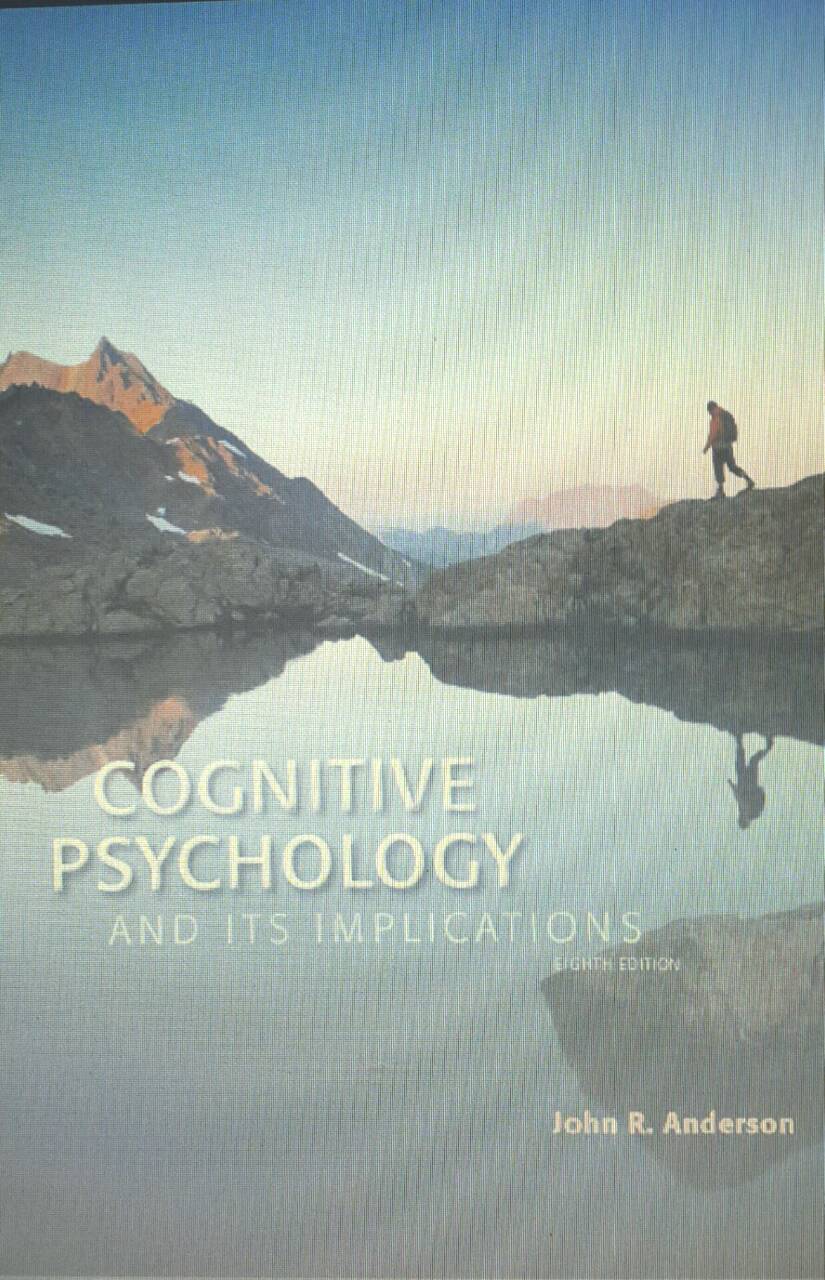Cognitive psychology as we know it today took form in the two decades between 1950 and 1970, in the cognitive revolution that overthrew behaviorism.Three main influences account for its modern development. The first was research on human performance, which was given a great boost during World War II when governments badly needed practical information about how to train soldiers to use sophisticated equipment and how to deal with problems such as the breakdown of attention under stress. Behaviorism offered no help with such practical issues. Although the work during the war had a very practical bent, the issues it raised stayed with psychologists when they went bac to their academic laboratories after the war.
The work of the British psychologist Donald Broadbent at the Applied Psychology Research Unit in Cambridge was probably the most influential in integrating ideas from human performance research with new ideas that were developing in an area called information theory. Information theory is an abstract way of analyzing the processing of information - Broadbent and other psychologists, such  as George Miller, Fred Attneave,and Wendell Garner, initially developed these ideas with respect to perception and attention, but such analyses soon pervaded all of cognitive psychology.
as George Miller, Fred Attneave,and Wendell Garner, initially developed these ideas with respect to perception and attention, but such analyses soon pervaded all of cognitive psychology.
The second influence, which was closely related to the development of the information-processing approach, was developments in computer science, par-ticularly AI, which tries to get computers to behave intelligently, as noted above.Allen Newell and Herbert Simon, both at Carnegie Mellon University, spent most of their lives educating cognitive psychologists about the implications of AI (and educating workers in AI about the implications of cognitive psychol ogy). - Although the direct influence of AI-based theories on cognitive psychol ogy - has always been minimal, its indirect influence has been enormous. A host of concepts have been taken from computer science and used in psychological theories. Probably more important, observing how we can analyze the intel-ligent behavior of a machine has largely liberated us from our inhibitions and misconceptions about analyzing our own intelligence
The third influence on cognitive psychology was linguistics, which studies the structure of language. In the 1950s, Noam Chomsky, a linguist at the Massachusetts Institute of Technology, began to develop a new mode of analyzing the structure of language. His work showed that language was much more complex than had previously been believed and that many of the prevailing behaviorist formulations were incapable of explaining these. Chomsky’s linguistic analyses proved critical in enabling cognitive psychologists to fight off the prevailing behaviorist conceptions. George Miller, at Harvard University in the 1950s and early 1960s, was instrumental in bring these linguistic analyses to the attention of psychologists and in identifying
new ways of studying language
Cognitive psychology has grown rapidly since the 1950s. A milestone was
the publication of Ulric Neisser’s Cognitive Psychology in 1967. This book gave a new legitimacy to the field. It consisted of 6 chapters on perception and attention and 4 chapters on language, memory, and thought. Neisser’s chapter division contrasts sharply with this book’s, which has only 2 chapters on perception and attention and 10 on language, memory, and thought. My chapter division reflects a growing emphasis on higher mental processes. Following Neisser’s work, another important event was the launch of the journal Cognitive Psychology in 1970. This journal has done much to define the field. In the 1970s, a related new field called cognitive science emerged; it attempts to integrated research efforts from psychology, philosophy, linguistics, neuroscience, and AI. This field can be dated from the appearance of the journal Cognitive Science in 1976, which is the main publication of the Cognitive Science Society. The fields of cognitive psychology and cognitive science overlap. Speaking generally, cognitive science makes greater use of such methods as logical analysis and the computer simulation of cognitive processes, whereas cognitive psychology relies heavily on experimental techniques for studying behavior that grew out of the behaviorist era. This book draws on all methods but makes most use of cognitive psychology’s experimental methodology.
Authors get paid when people like you upvote their post.
If you enjoyed what you read here, create your account today and start earning FREE STEEM!
If you enjoyed what you read here, create your account today and start earning FREE STEEM!
Congratulations @alimahdi! You received a personal award!
Click here to view your Board
Downvoting a post can decrease pending rewards and make it less visible. Common reasons:
Submit
Congratulations @alimahdi! You received a personal award!
You can view your badges on your Steem Board and compare to others on the Steem Ranking
Vote for @Steemitboard as a witness to get one more award and increased upvotes!
Downvoting a post can decrease pending rewards and make it less visible. Common reasons:
Submit